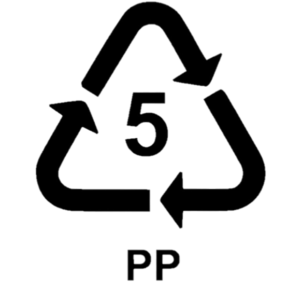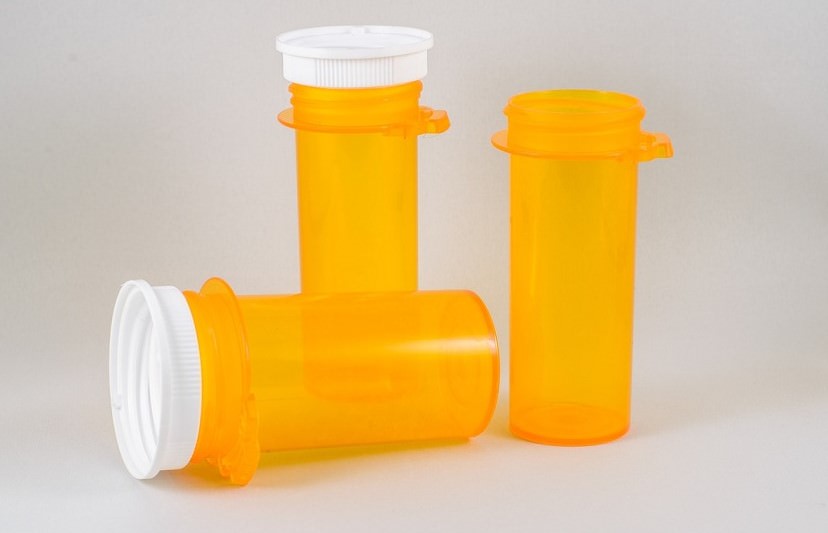Happy, cheerful Yoplait containers look like they're marketed for kids. Maybe they are. They're very sweet and taste really good. But there's a dark secret lurking behind those lighthearted images. These polypropylene containers are not recyclable. Not just a little not recyclable, but not at all.
Why?
Recycling isn’t the same as it used to be. A few years ago, China accepted much of the world’s plastic, textile, and paper recycling. But in 2018, China tightened restrictions on what it would accept due to the high level of contaminated material sent by the U.S.
That means almost all of the billions of yoplait containers (we have no idea how many actually but billions sounds good) produced annually end up in a American landfill. And, given the resistant nature of chemicals like polypropylene or (PET), the natural breakdown process can take years to complete. Like 450 years, that plastic's going to be around for a very long time.
Follow Phillip
The back of Yoplait containers contain some joyful reminders to recycle by checking locally. Again, think landfill. Or you can check the website listed on the Yoplait container (http://how2recycle.info), and find a slick corporate website for the marketers that use the recycling emblem. Nothing on that website tells you how to actually recycle PET, nor specifically how to recycle this container.
In the United States, plastic recycling is becoming a challenge, especially number 5 plastics. We’ve collected a few solutions to help you keep these plastics out of the landfills.
What Are Number 5 Plastics?
The recycling symbol on the bottom of a plastic product does not necessarily indicate that the item can be recycled. That number surrounded by chasing arrows is a resin identification code and tells users what kind of plastic they’re holding.
The number 5 with the recycling symbol indicates polypropylene, often just shortened to PP.

This plastic type is particularly hard and heat resistant. It’s often used in prescription medicine bottles, yogurt cups, hummus tubs, single-use cutlery, and some packaging for personal care products like deodorant, lotion, or shampoo. Lids of single-use drink bottles are often also made of number 5 plastic as well as a great deal of single-use laboratory and medical supplies at hospitals, clinics, and labs.
Number 5 plastics were widely accepted in both curbside and drop-off recycling centers before China’s National Sword policy was introduced in 2018. That is when China stopped accepting our plastic waste for recycling.
 |
| The bottom of my Yoplait container clearly marked with a Number 5 Plastic (PET; polypropylene) label. |
Currently, there a few (if any) mail-in options for recycling polypropylene. Do check with your local solid waste district to check local options in your region before going to this effort and expense.
The Gimme 5 program is run by Preserve, a company that makes fully recycled plastic home and kitchen goods. Formerly, Preserve offered recycling drop-off locations for polypropylene at Whole Foods stores but discontinued the program in 2019. A limited number of stores still accept plastic “disposable” cutlery only. Preserve now asks interested recyclers to mail in their number five plastics. They welcome medicine bottles, yogurt containers, hummus tubs, and more. Preserve also closes the lifecycle loop with their mail-in toothbrush takeback program.
Note: During the COVID-19 crisis, Preserve has had to temporarily pause its mail-in recycling program. See what kinds of number 5 plastics the company accepts and save your plastics to mail in when pandemic restrictions have lifted.
 Many prescription bottles are made from number 5 plastics.
Many prescription bottles are made from number 5 plastics. TerraCycle
The giant in recycling the unrecyclable arena is TerraCycle. This company’s motto is “eliminating the idea of waste” and they have programs that allow you to recycle almost any type of waste.
TerraCycle does not have a recycling program specifically for number 5 plastics, so you’ll have to hunt around their website for the best solution. There are free recycling programs as well as Zero Waste Boxes, which can be filled with plastic and mailed to TerraCycle, that you must pay for. If the bulk of your number 5 plastics come from a specific brand, check to see if there is a TerraCycle brigade program available that allows you to recycle the products for free.
If no free programs meet your needs, you may consider ordering, for a not-so-small fee, one of their zero waste boxes.
Keeping Number 5 Plastics Out of the Trash
We’re experiencing a plastics crisis in the United States and around the world. We encourage you to do what you can to eliminate plastic waste. One good place to start is to avoid plastics, like polypropylene, that can’t be recycled in your normal curbside or drop-off location.
If possible, skip the plastic and buy your yogurt in bulk or in glass containers — or make your own! Order a three-month supply of medicine instead of one, cutting down on packaging while saving a trip to the pharmacy.
If your favorite product comes packaged in hard-to-recycle number 5 plastic, make your voice heard! Let the manufacturer know you love their product but want it to come in earth-friendly packaging.
In the United State Yoplait is marketed exclusively by General Mills(@GeneralMills on Twitter). The company is owned by Groupe Sodiaal Coopérative Laitière Française headquartered in Paris. The CEO is Jorge Boucas. If you want to speak to them try @sodiaalcoop or @SeverineVasque on Twitter @SeverineVasque
We haven't heard back from them, yet.



No comments:
Post a Comment